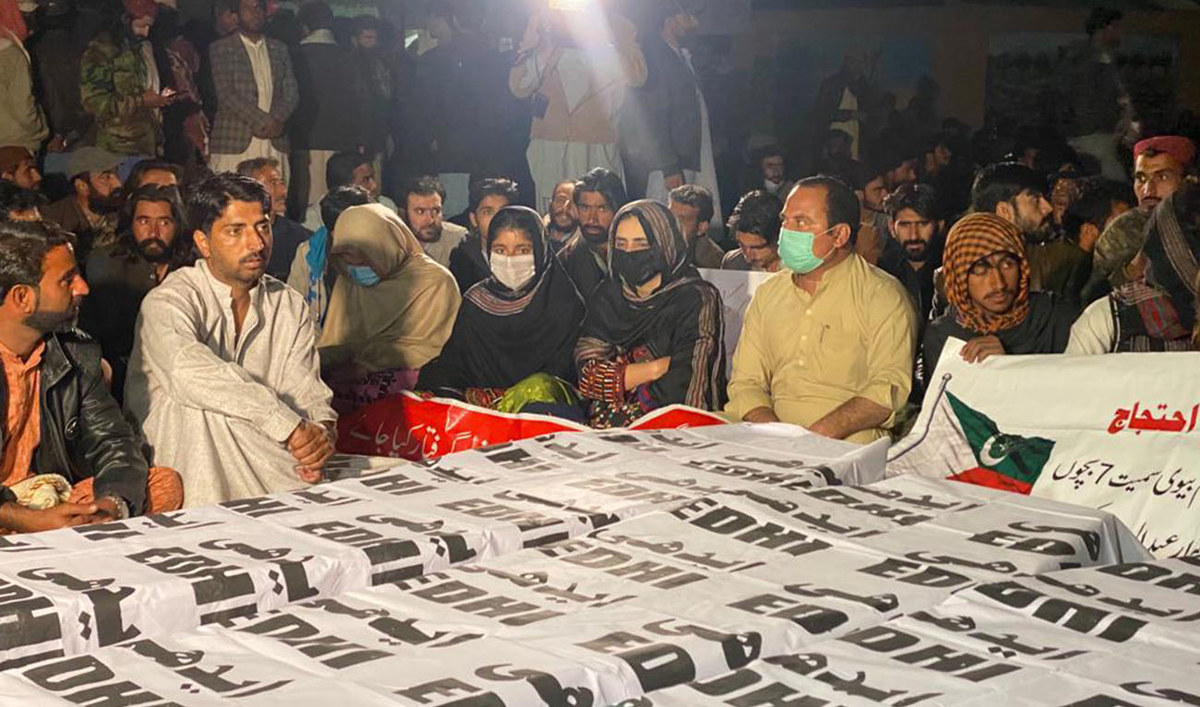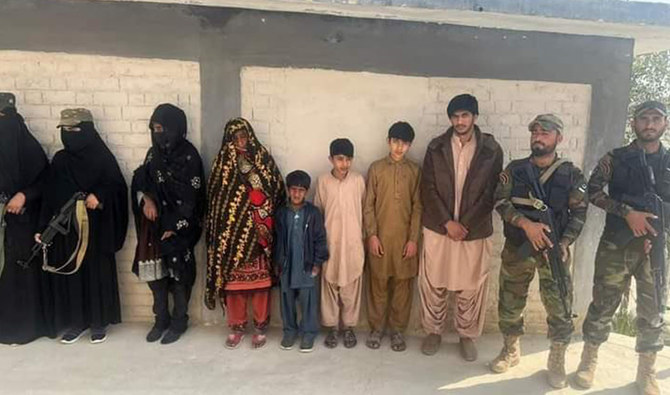QUETTA: In a dramatic twist in a triple murder case in Pakistan’s Balochistan province that has grabbed national headlines this week and sparked protests, a senior official said a woman believed to have been kidnapped and killed by a powerful politician had been recovered alive.
The Levies paramilitary force discovered three mutilated bodies in a well in the Hajji Kot area of Barkhan district in southwestern Balochistan on Monday night. The victims were said to belong to the family of a local tribesman, Khan Muhammad Marri, who has accused Communications and Works Minister Sardar Abdul Rehman Khetran of holding his family hostage in “private jails” and eventually killing them. Khetran is currently under arrest.
Protesters set up a camp in Quetta on Tuesday, refusing to bury the mutilated bodies, allegedly belonging to a woman, Giran Naz, and her sons, Muhammad Nawaz and Abdul Qadir. Prior to the bodies being discovered, a video went viral of Naz accusing Khetran of detaining her family and requesting Pakistani authorities to secure their release.

A group of protesters sit right next to the coffins of a woman and her two sons in Quetta, Pakistan, on February 22, 2023, accusing a provincial minister of triple murder and demanding his arrest. (@paank_bnm/Twitter)
Balochistan is Pakistan’s largest and poorest province. The arid western region is rich in minerals but plagued by violence, with powerful tribes long having held sway over political and social life in the region. Separatist militants also run amok in the area, carrying out frequent attacks on security forces and accusing the federal government of looting the region’s resources while leaving its people in poverty.
Deputy Commissioner Barkhan, Abdullah Khosa, told Arab News Naz and five of her children had been held hostage at different locations. Naz was recovered from Kohlu, he said.
“Our Levis Quick Response Force (QRF) teams raided various locations and recovered some members from Kohlu and Duki and some were recovered from the bordering areas of Barkhan and Dera Bugti,” Khosa said.
About the three bodies found in the well on Monday, the official said the woman’s face had been mutilated and was unrecognizable but the two male bodies were of Naz and Marri’s sons.
“Now we will investigate the identity of the woman whose body was found,” Khosa said.
Police surgeon Dr. Ayesha Faiz, who performed an autopsy on the woman’s body, said it belonged to a 17-18 year old girl.
“The body is not of some old woman,” she told reporters, adding that the girl had been sexually assaulted before being shot in the head three times. Acid had been poured on her face and neck to conceal her identity.
Khetran, meanwhile, was summoned by the deputy inspector general (DIG) of police in Quetta for interrogation on Wednesday and subsequently arrested.
The Balochistan government has also formed a Joint Investigation Team (JIT) after the triple murder triggered outrage on social media and protests in Quetta.
Jahangir Marri, the secretary general of the Marri Ittehad Pakistan that organized the Quetta sit-in, accused the police and paramilitary forces of trying to protect the provincial minister who he accused of maintaining “private jails” to torture people.
He said the protests would go on until police presented Naz and her children before the people and proved that they were alive.
“Our protest will continue in Quetta,” he told Arab News, “and we won’t end the sit-in until the authorities bring the recovered woman and her sons here.”






















